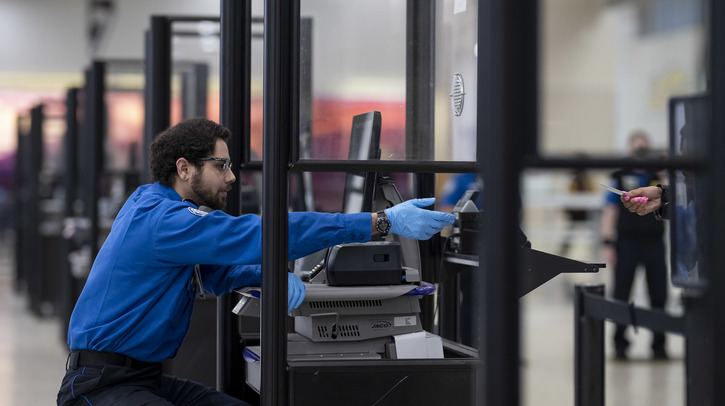Three pieces of legislation were introduced in the USA last week to assist the Transportation Security Administration (TSA) screen passengers.
On June 3, representatives introduced the bipartisan Stop the Scam Act. This legislation would end the diversion of the Passenger Security Fee (PSF), also known as the September 11th Security Fee, to the general Treasury. This legislation would also establish a new specific fund derived from the PSF, which airlines already collect when customers buy an airline ticket originating in the USA, to enable TSA to acquire new and modernized technology, including credential authentication technology (CAT) machines and computed tomography (CT).
Revenue from the Passenger Security Fee, which totaled nearly US$3.8bn in 2022, is deposited into the Aviation Security Capital Fund, which has historically been used to offset security expenses. However, language included in the Bipartisan Budget Act of 2013 allowed one-third of the revenue raised to be diverted to the general Treasury for deficit reduction.
In 2023, TSA told the Transportation and Maritime Security Subcommittee that based on past, present and current projected funding, it is not until 25 years from now, in 2049, that TSA will meet full operational capability for CAT machines; and 18 years from now, in 2042, it will meet the standard for Checkpoint Property Screening Systems, including CT units. In the FY24 Appropriations bill, the funding for security checkpoint technology was more than halved, from US$80m to US$35m.
The proposed legislation, led by Rep. Nick LaLota, would end the diversion established in the Bipartisan Budget Act of 2013 and ensure that the second US$250m raised from the PSF goes toward the newly established Aviation Security Checkpoint Technology Fund (ASCT) to be used specifically for modernizing and maintaining checkpoint security technology. The bill would not raise any fees or taxes.
On June 5, LaLota joined Congressmen Robert Garcia and Morgan McGarvey in introducing the Supporting Passengers with Efficient and Effective Detention (SPEED) through Screening Act, which would require TSA to develop strategies to reduce intrusive pat-downs without reducing transportation security, with particular consideration of passenger populations who receive pat-downs at disproportionately high rates.
The legislation would specifically require TSA to develop a strategy to reduce pat-downs without reducing security; require TSA to develop a strategy to reduce the need for passengers to divest items when going through security; make a statutory change to allow for TSA to move forward with testing and operating standoff detection technology; and require TSA to capture anonymized statistics regarding how it screens passengers to better understand the impacts of its screening operations.
Finally, Rep. Shri Thanedar introduced legislation in the House of Representatives on June 6 aimed at expediting airport security screening for disabled veterans and passengers.
In addition to providing expedited screening for disabled veterans and passengers, Rep. Thanedar’s legislation requires TSA to create annual training for TSA officers to properly serve passengers with disabilities. This training would be updated at least every two years in consultation with nationally recognized veterans and disability advocacy organizations. The legislation would also require TSA to enroll injured or disabled veterans in TSA Precheck at no cost.
In related news, the Transportation Security Administration (TSA) recently published a final rule for the Flight Training Security Program in the Federal Register. The final rule updates the program to improve its efficiency and effectiveness, including the security threat assessment process for flight training students. The final rule will take effect on July 30, 2024. Click here to read the full story.

